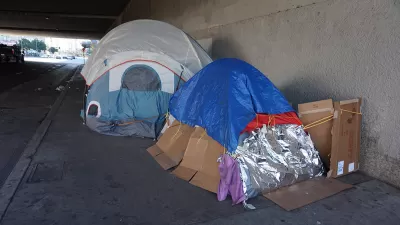Pittsburgh will continue its pursuit of a "source of income" law to protect against housing discrimination.

Pittsburgh created an ordinance in 2015 that forced landlords to accept federal housing vouchers—a so-called "source of income" rule. Last month, Allegheny County Common Pleas Judge Joseph James struck that law down, calling the law "invalid and unenforceable." Now the city plans to appeal that ruling.
Katie Giammarise reports:
At issue is a law that prevents property owners from discriminating against a tenant based on the person's “source of income.” City council passed the ordinance to address discrimination facing low-income tenants seeking to utilize subsidies, such as Housing Choice Vouchers, commonly called Section 8. The program gives low-income people a voucher to find a home in the private rental market; tenants must pay a portion of their income in rent with the difference made up via a federal subsidy.
The judge ruled in a lawsuit brought by the Apartment Association of Metropolitan Pittsburgh shortly after the city approved the law.
The National Law Center on Homelessness and Poverty recently released a report that recommends source of income laws as a key strategy for reducing the "eviction epidemic" around the country. A similar law failed in Baltimore in 2016. Meanwhile, in Texas, the state and the city of Dallas squared off in court in 2017 over the state's preemption of source of income laws.
FULL STORY: City will appeal ruling on source of income bill

Montreal Mall to Become 6,000 Housing Units
Place Versailles will be transformed into a mixed-use complex over the next 25 years.

Planetizen Federal Action Tracker
A weekly monitor of how Trump’s orders and actions are impacting planners and planning in America.

Four Reasons Urban Planners Can’t Ignore AI
It’s no longer a question of whether AI will shape planning, but how. That how is up to us.

Bend, Deschutes County Move to Restrict Major Homeless Encampment
City and county officials are closing off portions of an area known as Juniper Ridge where many unhoused residents find shelter, hoping to direct people to housing and supportive services.

High Housing Costs Driving Down Transit Ridership in LA
When neighborhoods gentrify and displace lower-income residents, transit ridership suffers, new research shows.

Iowa Legalizes Accessory Dwelling Units
A new law will allow property owners to build ADUs on single-family lots starting on July 1.
Urban Design for Planners 1: Software Tools
This six-course series explores essential urban design concepts using open source software and equips planners with the tools they need to participate fully in the urban design process.
Planning for Universal Design
Learn the tools for implementing Universal Design in planning regulations.
City of Mt Shasta
City of Camden Redevelopment Agency
City of Astoria
Transportation Research & Education Center (TREC) at Portland State University
City of Camden Redevelopment Agency
Municipality of Princeton (NJ)
Regional Transportation Commission of Southern Nevada





























